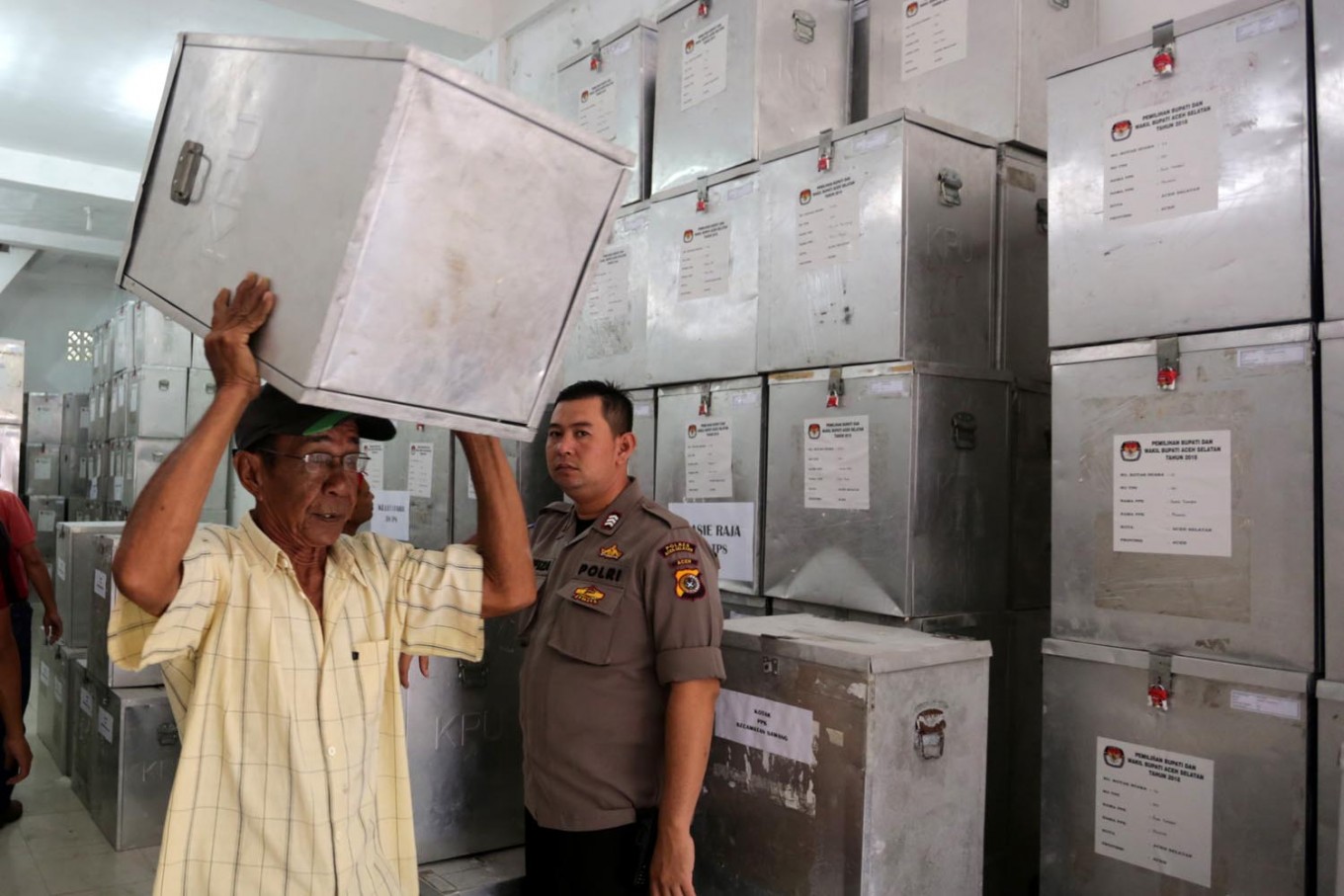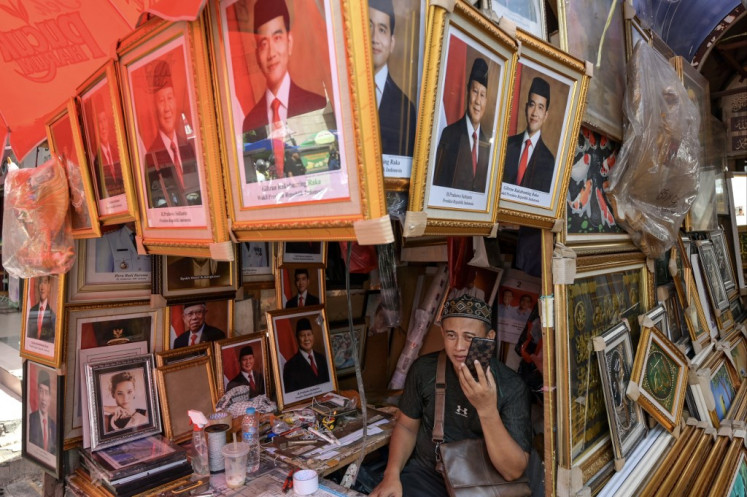The dens of thieves we help build through general elections
President Joko “Jokowi” Widodo has not exactly been helpful.
Change Size
 Get ready: A worker moves a ballot box for the South Aceh regental election from a warehouse of the South Aceh Independent Election Monitoring Committee (KIPP) in Tapaktuan, South Aceh, Aceh, on June 25. (Antara/Irwansyah Putra)
Get ready: A worker moves a ballot box for the South Aceh regental election from a warehouse of the South Aceh Independent Election Monitoring Committee (KIPP) in Tapaktuan, South Aceh, Aceh, on June 25. (Antara/Irwansyah Putra)
T
he general election in April is rapidly turning into a farce as the nation may end up voting for candidates with prior criminal records for corruption to represent them.
If we are looking for a reason as to why the antigraft drive, which has been the nation’s concern since the collapse of the corrupt Soeharto regime in 1998, has been ineffective, look no further than how we recruit people who will represent us.
The Elections Supervisory Agency (Bawaslu) last week approved 16 candidates to contest seats in various national and local legislatures, even though their names had been rejected earlier after it was discovered that they had prior graft convictions.
As if that wasn’t bad enough, 20 of the 41 members of the legislative council in the East Java city of Malang who were nabbed last week by the Corruption Eradication Commission (KPK) on charges of graft are listed as candidates for the 2019 election.
There are no signs that their names will be removed because the presumption of innocence principle means they have every right to contest the election. With the court already overwhelmed with hearings, their cases will likely be decided long after the election is held, meaning that they can still win and keep their seats.
One has to wonder about how many more people we are missing among the 200,000 plus candidates contesting 20,058 seats in the different legislatures — 575 in the House of Representatives, 136 in the Regional Representatives Council (DPD), 2,207 in the provincial level legislative council (DPRD) and the 17,610 in the regency/city level legislative councils.
It is hard to make an estimate about how many of these candidates have high moral integrity and will not be tempted to steal once elected, but the track records of the legislatures are not good. Since 2014 up until May this year, 132 members of the different legislatures have been convicted of corruption by the KPK.
There is definitely something wrong in the way the nation recruits candidates for the legislatures. This has been the case in the past, and by the looks of it, this will still be the case with the new batch of our representatives for the 2019-2024 period.
President Joko “Jokowi” Widodo has not exactly been helpful. Last week he refused to reign in on the Bawaslu ruling, saying that it was an independent body and that its decision must be respected.
This is in spite of Law and Human Rights Minister Yasonna Laoly signing Regulation No. 20/2018 issued by the General Elections Commission (KPU), which bans people with criminal records for drug trafficking, sexual crimes against children and corruption from contesting the election.
Yasonna had earlier refused to sign, saying this contravened the 2017 Election Law that imposes no such restrictions, and adding that any attempt by the KPU to impose it could be challenged in court for violating people’s political and human rights.
Yasonna is not exactly known for championing human rights. Where was he when minority groups like the Ahmadiyah and Shiite communities, as well as the lesbian, gay, bisexual and transgender (LGBT) community faced persecution? Why is he all of a sudden so concerned with the rights of former graft convicts?
When political parties and independent candidates contesting the legislature seats in 2019 submitted their names to the KPU in July, the KPK went through the list and found that 199 names had prior convictions for graft. Most political parties withdrew and replaced their names, but some individual candidates, taking their cue from Yasonna, appealed to Bawaslu and the Supreme Court.
At least 16 of them won at Bawaslu, hierarchically the higher agency of the two agencies in managing the elections. The KPU says it will continue to enforce the ban. And then, there is the ruling from the Supreme Court that will put a finality to this dispute.
Irrespective of the final outcome, it is the attitude of those in power — the government, the House and the political parties — that is most disturbing. Obviously, they don’t take the anticorruption campaign seriously.
Jokowi’s predecessor, Susilo Bambang Yudhoyono, was elected in 2004 on his strong antigraft campaign rhetoric. In his first term, the KPK nabbed many top political and government figures to convince the nation that he had what it takes in leading the campaign that he was reelected in 2009. But in the second term, between 2009 and 2014, most of the graft cases involved people in his inner circle, both in the government and his Democratic Party.
Yudhoyono squandered the one legacy that he would have been remembered for: Eradicating corruption.
Unless Jokowi takes a stronger stand to stop former corruption convicts from contesting the elections in 2019, he will play a contributory role in helping the nation elect a bunch of politicians with dubious characters and track records that will turn our legislatures into nothing more than dens of thieves.










